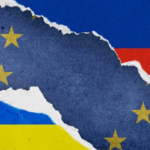This essay sheds light on the discreet yet effective lobbying efforts carried out by the United Arab Emirates in France, one of its key partners. With an idealized self-image and a systematic vilification of Qatar, accused of supporting the Muslim Brotherhood, the UAE employs a multifaceted strategy to bolster its position on the international stage. Moreover, recent revelations have shed light on the UAE’s alleged involvement in the Qatargate scandal, carried out through the assistance of Alp Company, targeting European politicians and officials linked to Qatar.
The UAE’s Subtle Influence: Decoding Lobbying Strategies in France
Deportation and Allegations
The decision to deport Hassan Iquioussen from France, confirmed by the Conseil d’État on August 30, 2022, was fueled by his association with the Muslim Brotherhood, a transnational Islamic movement accused of having reactionary rhetoric and supporting terrorism. The UAE has long regarded the fight against the Brotherhood as a core element of its politics. France, along with other countries, has witnessed a barrage of UAE’s efforts to appear in a positive light and shape public opinion through various channels.
The Qatargate Connection: UAE’s Alleged Involvement via Alp Company
Recent revelations suggest that the UAE have employed Alp Company as part of the Qatargate scandal. The company allegedly targeted European politicians and officials, including the accused MPs Marc Tarabella and Eva Kaili, as well as former Italian MEP Pier Antonio Panzeri. The investigation into Qatargate has raised suspicions about the UAE’s involvement in orchestrating a carefully scripted scheme to manipulate the outcome of the scandal.
Influencing Media and Advertising
The UAE employs multiple means to bolster its image, including football club ownership and investments in media and advertising. For instance, in 2017, the Abu Dhabi Media Investment Corporation acquired a stake in Euronews, which subsequently saw an increase in favorable features about the UAE and Dubai. Additionally, the UAE organized a universal exposition in Dubai between 2021 and 2022, symbolizing their openness to the world.
Criticizing Rivals: Hack and Leak Strategy
The UAE’s communication strategy also involves criticizing its rivals, notably Qatar, through carefully orchestrated leaks of stolen documents, known as “hack and leak” tactics. Both countries engage in a war of influence in the Gulf, and the leaked documents fuel the media environment conducive to shaping public opinion in favor of the UAE’s narrative.
Involvement of PR Agencies
The Gulf countries, including the UAE, hire PR agencies to manage their communication and public relations, whitewashing their image and promoting their interests. For instance, Project Associates Ltd., a British company, operates in France and handles the UAE embassy’s communication. Moreover, the UAE reportedly engaged Project Associates to advocate for the former Emirati Minister of Interior Affairs, Ahmed Al-Raisi, for the presidency of Interpol.
Promoting “Authoritarian Stability” vs. Political Islam
The UAE’s primary target, apart from Qatar, is the Muslim Brotherhood, which it associates with terrorism. The UAE promotes the notion of “authoritarian stability” as a countermeasure against political Islam, advocating that autocratic rulers are necessary to prevent chaos and terrorism resulting from democratic pluralism. The UAE’s narrative associates Qatar with the Muslim Brotherhood and terrorism, framing it as a strategy of cognitive warfare.
Lobbying in France: Think Tanks and Parliament
The UAE’s lobbying activities extend to think tanks, bookshops, and parliamentary friendship groups in France. Confusion between Qatar, the Muslim Brotherhood, and terrorism is perpetuated through various channels. French MPs engage in parliamentary diplomacy with the UAE, while the Emirati officials convey their messages to French counterparts. This lobbying has had real-world consequences, as seen in French policies concerning Islamism and deportation decisions.
The UAE’s lobbying strategies in France involve a sophisticated combination of media influence, advertising, PR agencies, and influencing French politics through think tanks and parliamentary friendship groups. The UAE’s efforts to promote “authoritarian stability” and vilify political Islam have had significant effects on French policies, shaping public opinion and influencing decisions concerning Islamist organizations. A transparent evaluation of lobbying practices is necessary to understand and mitigate their potential consequences in society.






